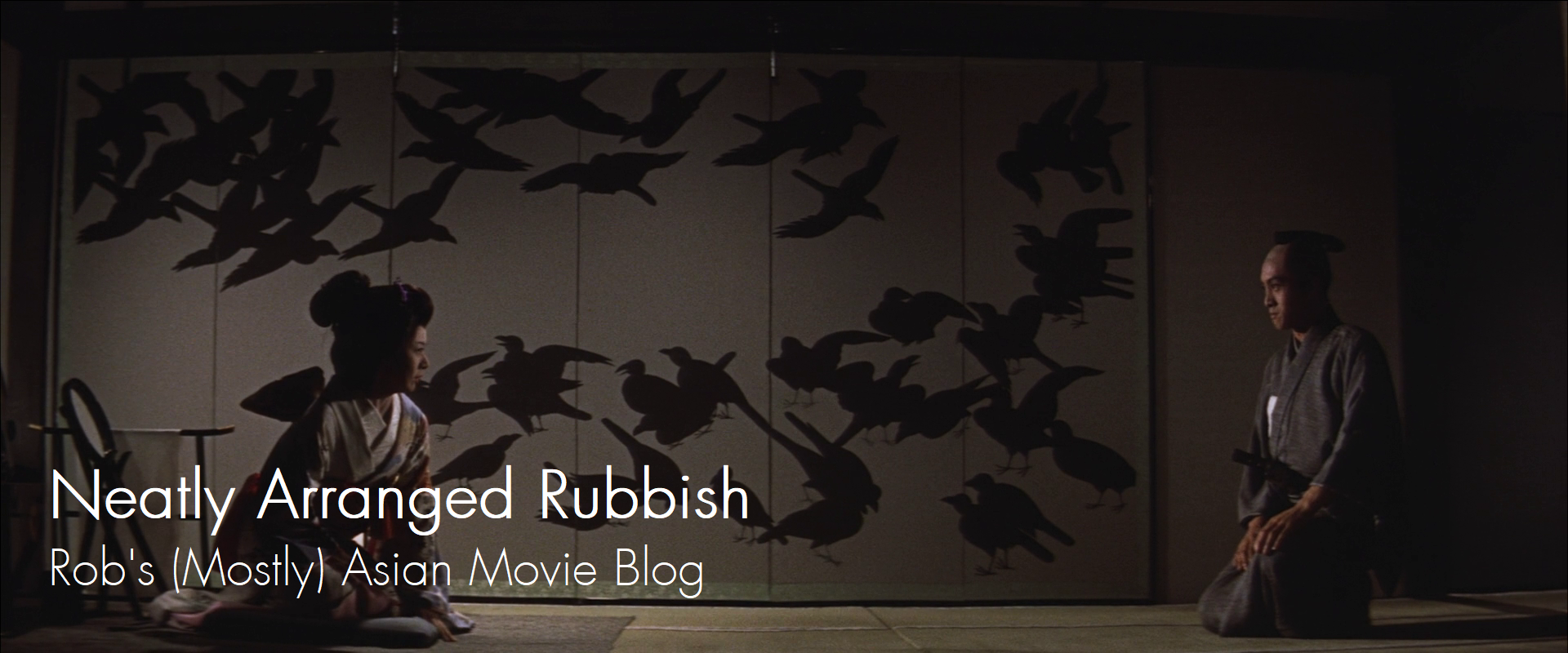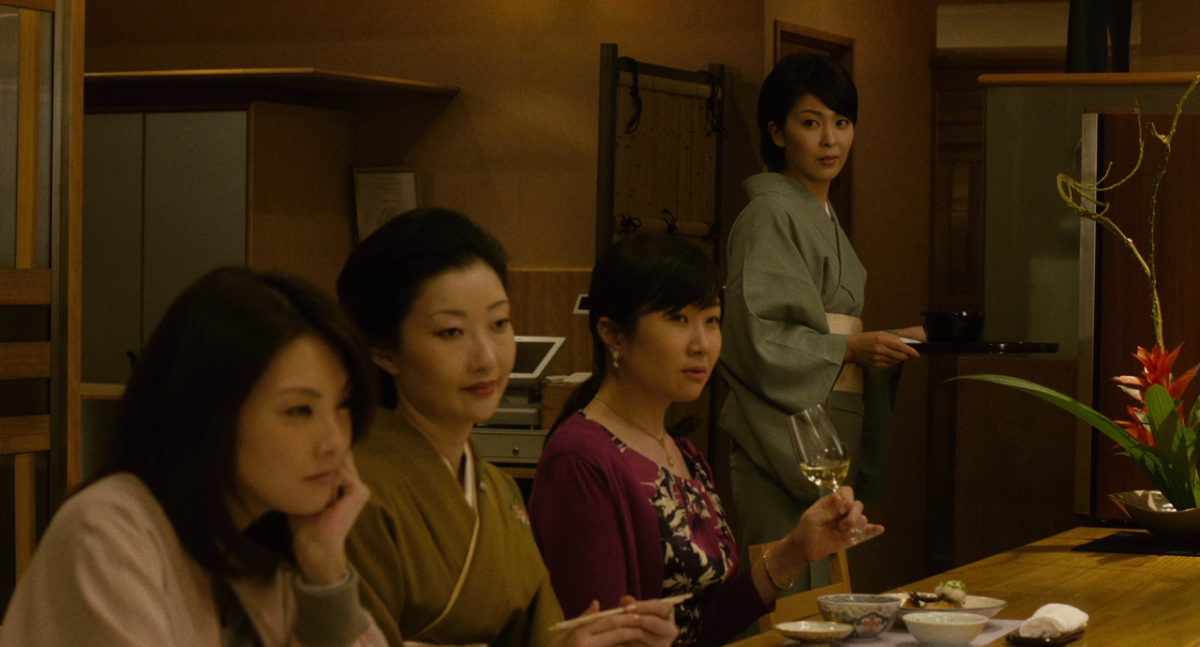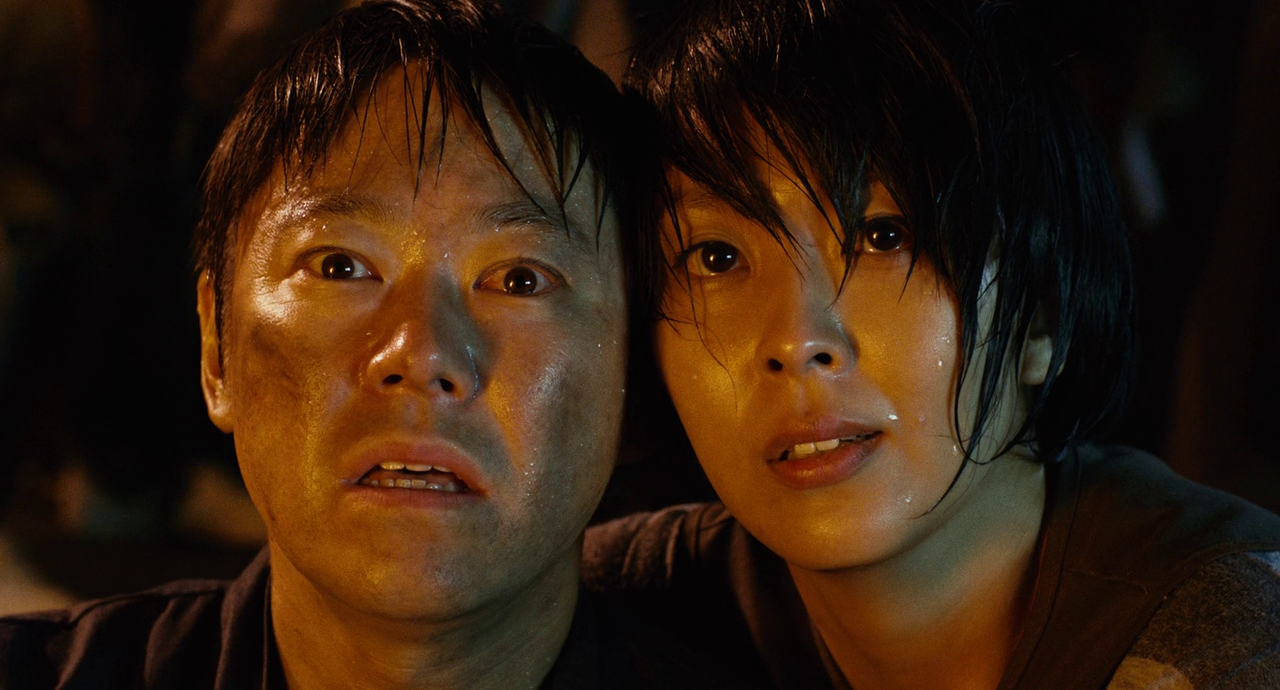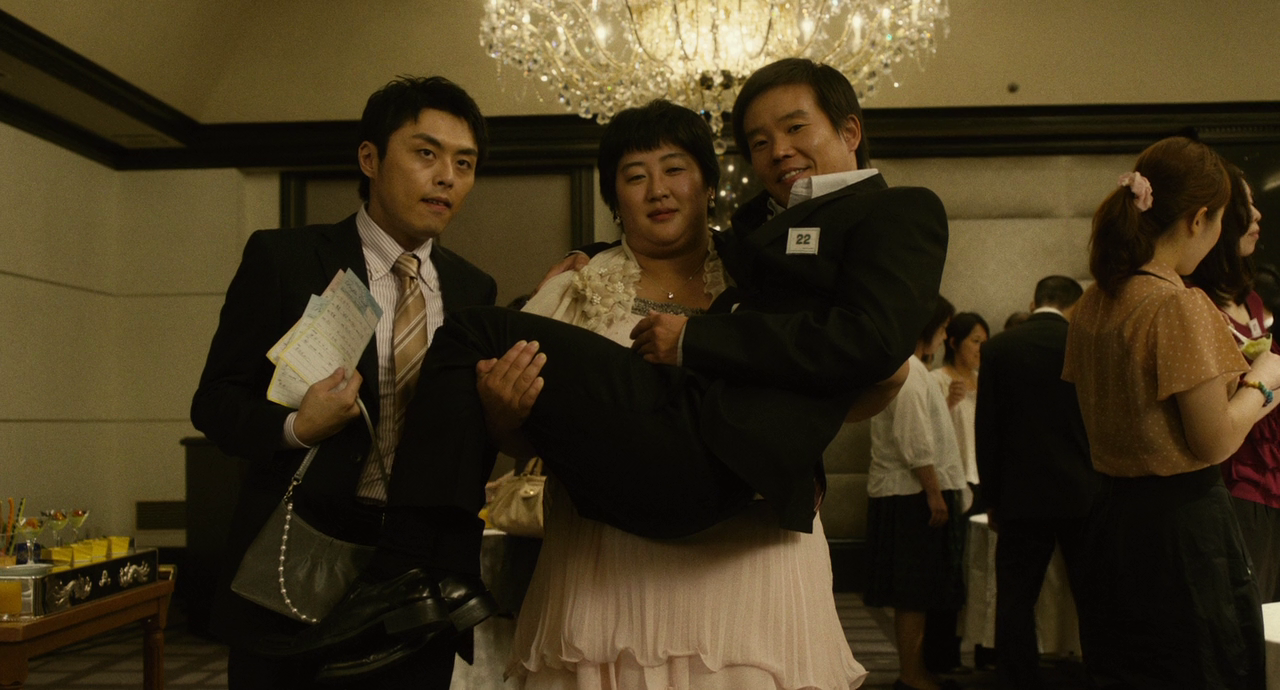Last Updated on September 29, 2020 by rob
When the restaurant of husband Kanya (Sadao Abe) and wife Satoko (Takako Matsu) goes up in flames Satoko hits on the idea of using her husband to seduce his way into the affections of a string of lonely single women and then defraud them of their savings – savings the pair can then put toward buying their new restaurant. But things go awry when Kanya develops a genuine affection for the Olympic dream of his latest victim, sweetly good-natured weightlifter Hitomi (Yuka Ebara), even as their first victim hires a private investigator to discover the truth about Kanya.
A mesmerising crime drama/character study with a terrific central performance from Takako Matsu as a traditional Japanese housewife whose single-minded determination in pursuit of hubby’s dream develops into something callous and unsettling and increasingly an end unto itself. Yet we’re constantly reminded that this is also a woman bound by ideals of servitude and simply doing her best to keep her husband happy and her marriage alive. It’s a tricky balancing act to pull off – especially over a film this long – but Matsu’s sweet demeanour with its undertow of menace really has you gripped by her plight and Nishikawa’s film keeps turning up new perspectives to the characters that surprise us. There’s a devastating moment where Kanya accuses his wife of not wanting money but revenge. Revenge on him – because after their restaurant burnt down he got drunk and slept with a former customer – and revenge on the single, affluent woman (all superbly cast and played) who populate the restaurant they work in and who enjoy the kind of freedom Satoko never could.
It’s a moment of such piercing insight precisely because we recognise the element of truth to it. It may not be the whole of who Satoko is but it’s definitely a part of her. Sadao Abe is also good as the weak, self-loathing Kanya who comes into his own when weightlifter Hitomi’s dream of Olympic glory completely overshadows his. That’s a neat touch by Nishikawa (who both wrote and directed the movie) and it lays the groundwork for Kanya’s increasing emotional distance from his wife and his inherent compassion for the women he’s supposed to be callously defrauding. There’s a lovely sequence here in which he hooks up with a prostitute and helps the woman get back together with her boyfriend. It’s arguably a subplot that could have been dropped but it’s so well played by all concerned – not least a charming bicycle ride between the pair through night-time Tokyo – that it would feel like a shame to lose it.
Although writer/director Miwa Nishikawa is a protégé of Hirokazu Kore-eda it’s immediately noticeable that she doesn’t share his observational, documentary approach. In fact her style feels much more consciously cinematic and her mise-en-scene is really outstanding. The sequence in which Kanya and Satoko’s place goes up in flames pulls you so deep into the rhythm and ambience of a rushed-off-their-feet husband and wife serving a packed bar of boisterous evening customers that you’re as shocked as they are when disaster strikes. And the last scene of the film – which cuts between our two protagonists – both apart but seemingly gazing at the same sight of a seagull hovering in the sky – is the perfect visual metaphor for a shared dream forever in sight yet forever out of reach. Nishikawa also has an eye for razor sharp editing juxtapositions. When she chides Kanya for his affection toward the muscular Hitomi and Kanya snaps back, “I feel much more sorry for the world you see through your eyes” there’s a cut to a long shot of Satoko riding alone down a huge escalator that feels absolutely perfect in terms of expressing the emotional estrangement between husband and wife.
Like Nishikawa’s Sway (2006) this is a story on a theme of familial duty and obligation but deeper, darker, more ambitious and with a nice line in black humour. I got a laugh out of the scene where Kanya is calling his victims to bid them farewell as his wife sits next to him writing out his lines on sheets of paper he’s ‘tearfully’ reading off to them. Or the sight of Kanya’s victims lined up at a bar gazing adoringly at him while Satoko looks on. There’s also, I think, a thematic connection here with Nagisa Oshima’s Boy (1969), in which an unscrupulous mother and father use their infant son as the victim in faked traffic accidents so they can extort hush money from the drivers. Both films feel like twisted portraits of a certain kind of Japanese tradition although unlike Oshima’s adults we never quite lose our sympathy for Satoko and Kanya. Terrific film then and one that reaffirms Miwa Nishikawa as one of the most formidable talents in contemporary Japanese cinema.



